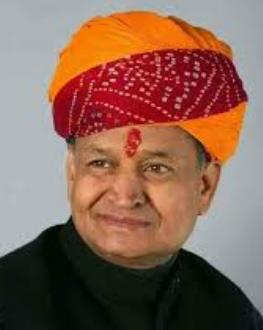DAINIK NATION BUREAU : As the Rajasthan gears up for upcoming assembly elections, the political atmosphere is charged with anticipation and enthusiasm. On july 27, 2023 Rajasthan Chief Minister Ashok Gehlot has levied a significant charge against Prime Minister Narendra Modi. Gehlot’s accusation comes amidst PM Modi’s upcoming trip to the poll-bound state. The exchange of words between these prominent leaders has intensified the political discourse and set the stage for a closely-watched electoral battle.
Ashok Gehlot’s Big Charge :
In a move to garner support and draw attention to his party’s agenda, Rajasthan Chief Minister Ashok Gehlot has made a significant charge against Prime Minister Narendra Modi. The details of the accusation have drawn media attention and public interest, as it comes at a crucial juncture in the run-up to the state elections. Gehlot’s charge aims to influence public perception and sway voter sentiment ahead of the polls, emphasizing the high stakes involved in the electoral battle.
Implications on the Electoral Landscape
As Rajasthan prepares to head to the polls, the exchange of allegations and counter-allegations between the ruling party and the opposition can have significant implications on the electoral landscape. Political mudslinging and accusations can influence voters’ perceptions, but they can also be divisive and divert attention from substantive issues affecting the state. Voters are keenly observing the actions and promises of both parties, hoping for solutions to the pressing challenges that confront Rajasthan.
The Importance of Substantive Debates and Policies :
While the political discourse is inevitable during election campaigns, the importance of substantive debates and policies should not be overlooked. Rajasthan faces a myriad of issues, including economic development, employment opportunities, infrastructure improvements, education, and healthcare. Voters are seeking tangible solutions and concrete plans to address these concerns rather than being drawn into mere political rhetoric.
Leaders’ Responsibility in Political Communication :
As leaders vie for public support, they bear a significant responsibility in their political communication. Engaging in constructive debates and presenting well-articulated policies can elevate the political discourse and instill confidence in the voters. Voters appreciate leaders who prioritize the interests of the state over personal attacks, as this reflects a commitment to public welfare and good governance.
The Role of the Public in Shaping Rajasthan’s Future :
Ultimately, the power to shape Rajasthan’s future lies with the people. As citizens head to the polls, they have the opportunity to exercise their democratic right and influence the direction the state will take. Informed and engaged voting can lead to the selection of leaders who genuinely prioritize the welfare of Rajasthan and are committed to addressing its challenges.
The political charge levied by Rajasthan Chief Minister Ashok Gehlot against Prime Minister Narendra Modi ahead of the state elections has set the stage for an intense electoral battle. As the campaigning gains momentum, it is crucial for both parties to focus on substantive issues and policies that resonate with the voters’ aspirations. By engaging in constructive debates and presenting well-defined plans, leaders can instill confidence in the electorate and demonstrate a commitment to the state’s development. As Rajasthan’s future is shaped through the power of the ballot, the significance of informed voting and responsible political communication cannot be overstated.
 Dainik Nation News Portal
Dainik Nation News Portal


